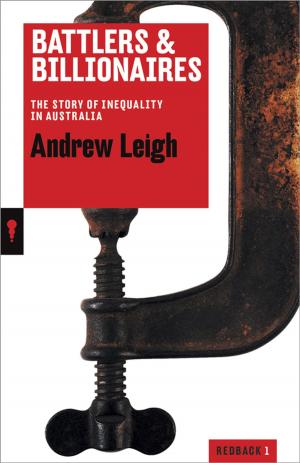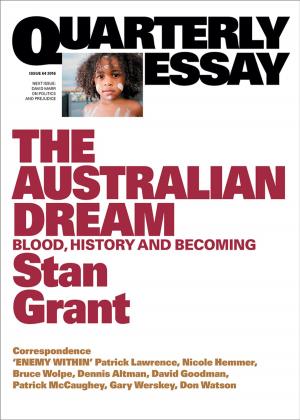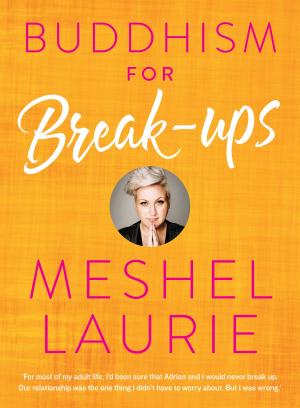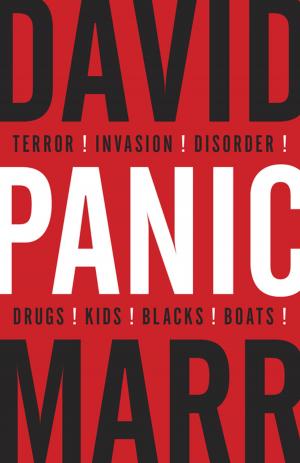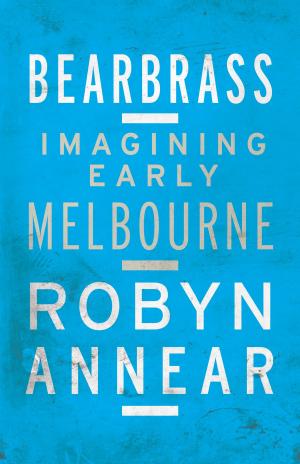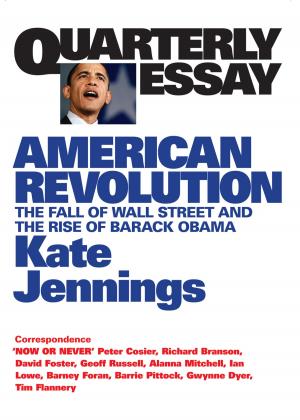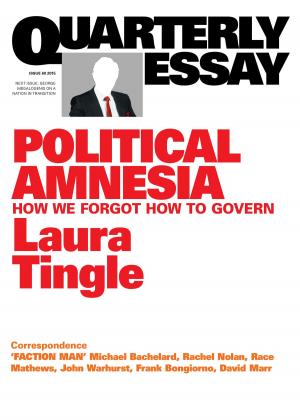Quarterly Essay 18 Worried Well
The Depression Epidemic and the Medicalisation of Our Sorrows
Nonfiction, Health & Well Being, Self Help, Mental Health, Depression, Medical, Ailments & Diseases| Author: | Gail Bell | ISBN: | 9781921825170 |
| Publisher: | Schwartz Publishing Pty. Ltd | Publication: | June 1, 2005 |
| Imprint: | Quarterly Essay | Language: | English |
| Author: | Gail Bell |
| ISBN: | 9781921825170 |
| Publisher: | Schwartz Publishing Pty. Ltd |
| Publication: | June 1, 2005 |
| Imprint: | Quarterly Essay |
| Language: | English |
In The Worried Well: The Depression Epidemic and the Medicalisation of Our Sorrows, Gail Bell investigates Australia's depression epidemic. Why, she wonders, do well over a million Australians now take antidepressant drugs?
This is a fresh, frank and independent look at the depression culture and the move to medicalise sadness. Bell examines how the prescription culture operates, scrutinising the role of big drug companies and GPs and talking to those who take - and don't take - the new antidepressants, from anxious students to lonely retirees. She finds that drug companies have invested billions in an effort to simplify a profoundly complex mental condition, and that along the way ordinary problems of living have been transformed into medical conditions. She also finds that we, the consumers, have been happy to get on board: the vocabulary of depression - "serotonin", "bipolar", "genetic predisposition" - rolls off our tongues as if each of us had studied it at medical school.
In this freeranging and elegant essay, Bell takes the pulse of Australia's "worried well" and looks at alternative cures for what ails us.
‘If the number of prescriptions truly reflects the numbers who are depressed, then we may need to re-design our tourist brochures. The sun-bronzed Aussie optimist with his no-worries attitude to calamity might be an outdated caricature.’ —Gail Bell, The Worried Well
‘Her prose is passionate and well-paced, and her argument, for my money, is unassailable.’ —the Bulletin
‘Thoughtful, anecdotal, wide-ranging.’ —*Sydney Morning Herald*
‘An imaginative and compelling writer.’ —*Big Issue*
Gail Bell is the author of Quarterly Essay 18: The Worried Well – The Depression Epidemic and the Medicalisation of Our Sorrows. Her first book, The Poison Principle, won the NSW premier’s prize for non-fiction in 2002 and was published around the world. Her second book, SHOT: A Personal Response to Guns and Trauma, was released to critical acclaim in 2003 and shortlisted for the Nita B. Kibble award. A graduate of the University of Sydney, where she studied pharmaceutics and education, she has since written numerous short stories and journalistic articles about medicine and her travels.
In The Worried Well: The Depression Epidemic and the Medicalisation of Our Sorrows, Gail Bell investigates Australia's depression epidemic. Why, she wonders, do well over a million Australians now take antidepressant drugs?
This is a fresh, frank and independent look at the depression culture and the move to medicalise sadness. Bell examines how the prescription culture operates, scrutinising the role of big drug companies and GPs and talking to those who take - and don't take - the new antidepressants, from anxious students to lonely retirees. She finds that drug companies have invested billions in an effort to simplify a profoundly complex mental condition, and that along the way ordinary problems of living have been transformed into medical conditions. She also finds that we, the consumers, have been happy to get on board: the vocabulary of depression - "serotonin", "bipolar", "genetic predisposition" - rolls off our tongues as if each of us had studied it at medical school.
In this freeranging and elegant essay, Bell takes the pulse of Australia's "worried well" and looks at alternative cures for what ails us.
‘If the number of prescriptions truly reflects the numbers who are depressed, then we may need to re-design our tourist brochures. The sun-bronzed Aussie optimist with his no-worries attitude to calamity might be an outdated caricature.’ —Gail Bell, The Worried Well
‘Her prose is passionate and well-paced, and her argument, for my money, is unassailable.’ —the Bulletin
‘Thoughtful, anecdotal, wide-ranging.’ —*Sydney Morning Herald*
‘An imaginative and compelling writer.’ —*Big Issue*
Gail Bell is the author of Quarterly Essay 18: The Worried Well – The Depression Epidemic and the Medicalisation of Our Sorrows. Her first book, The Poison Principle, won the NSW premier’s prize for non-fiction in 2002 and was published around the world. Her second book, SHOT: A Personal Response to Guns and Trauma, was released to critical acclaim in 2003 and shortlisted for the Nita B. Kibble award. A graduate of the University of Sydney, where she studied pharmaceutics and education, she has since written numerous short stories and journalistic articles about medicine and her travels.

